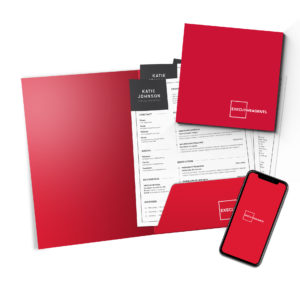7 Things To Never Put On A Resignation Letter
Do you need to submit a resignation letter, but worry about what should be left out? With its potential long-term impacts on careers, getting the tone and content of your resignation letter right is crucial.
This post will guide you through seven things that should never find their way into your notice of departure, helping you keep everything professional and respectful. Ready to master the art of quitting gracefully? Read on!
Contents
- 7 Things To Never Put On A Resignation Letter
- The Importance of a Thoughtful Resignation Letter
- When to Send a Resignation Letter
- How to Deliver a Resignation Letter
- Things to Avoid in a Resignation Letter
- Conclusion
- FAQs
- 1. Can I include my reasons for leaving in a resignation letter?
- 2. Is it okay to criticise my employer or colleagues in a resignation letter?
- 3. Should I mention any personal issues or conflicts in my resignation letter?
- 4. Can I demand certain conditions or benefits in my resignation letter?
- 5 . Do I need to give notice period details on my resignation letter?
- FREE CV SAMPLE
Key Takeaways
- Reflect professional etiquette by crafting a polite and respectful resignation letter.
- Give appropriate notice of at least two weeks before your departure.
- Deliver the resignation letter either in person or through email with a scanned copy.
The Importance of a Thoughtful Resignation Letter

A thoughtful resignation letter is essential for reflecting professional etiquette and maintaining a positive relationship with your employer.
Reflecting professional etiquette
Professional etiquette permeates every part of your resignation letter. It means crafting a polite, respectful message that maintains the relationships you’ve built. The language and tone used should be warm yet formal, reinforcing positive interactions with colleagues and bosses.
Express gratitude for the opportunities provided by your employer, as this prompts mutual respect and leaves a lasting impression of professionalism. Importantly, avoid negativity or negative comments about others in the company – keeping these out signifies maturity and discretion which are key aspects of professional etiquette.
Maintaining a positive relationship with your employer
Establishing a favourable rapport with your employer makes the resignation process smoother. This connection is best maintained through consistent professionalism and respect, even in the final farewell via the resignation letter.
Ensure that you express gratitude for the opportunities provided by your company during your tenure there, omitting any concerns related to money or personal issues. Holding back from making negative comments about either colleagues or superiors contributes significantly towards leaving on good terms.
Always remember, a polite tone throughout reflects positively in your employment file and can become a key aspect of your future professional relationships. A positive relationship not only helps in avoiding common errors in a resignation letter but also fosters trust and mutual respect between you and your employer thus paving way for potential future collaborations.
When to Send a Resignation Letter
It is important to give appropriate notice when resigning from a job, as this allows for a smooth transition and avoids any last-minute confusion.
Giving appropriate notice
Setting a specific date for your departure is critical in crafting a professional resignation letter. This forms an essential part of giving appropriate notice to your employer, allowing them sufficient time to adjust or find suitable replacements.
Offering at least two weeks’ notice is generally considered good practice, and conveys respect towards the company’s operations and processes. However, always check your employment contract first – it may stipulate a different required notice period.
Not only does this reflect well on you as an employee but it also helps maintain positive relationships with your superiors even after moving on from the role. Your specified departure date sets the tone for smooth transition plans and avoids any future confusion or misunderstanding regarding your official last working day.
Avoiding last-minute confusions
A well-timed resignation letter eliminates the chaos of last-minute confusion. Submit your letter in advance to give your employer ample time to plan for your departure. This practice contributes to maintaining a positive relationship with your company, prevents unnecessary pressure on colleagues and allows for a smoother transition process.
Also, it upholds professional etiquette by respecting the period typically required for notice before leaving an employment position. In this way, you avoid common errors in creating an effective resignation letter.
How to Deliver a Resignation Letter
To deliver your resignation letter, you can either hand-deliver it in person or email a scanned copy.
Hand-delivering in person
Hand-delivering a resignation letter in person fosters professionalism and respect towards your employer. This act ensures that the manager receives your notice directly, maintaining transparency and open communication.
It also allows you to discuss any immediate questions or concerns regarding departure dates, task handovers, or other related matters. While it may feel uncomfortable to personally deliver such news, this method often leaves a favourable impression about your conduct even after leaving the company.
Emailing a scanned copy
Opting to deliver your resignation via email involves a few more steps but remains a viable and commonly used method. Start by creating a scanned copy of your signed resignation letter using either a scanner or an app on your smartphone which can create high-quality scans.
The scanned document should be saved as a PDF file to ensure the readability across various devices. Attach this PDF file in an email addressed to appropriate recipients including your direct supervisor, HR manager or anyone else in the line of approval for such matters.
It’s also crucial that you use an appropriate subject line, like ‘Resignation – [Your Name]’, to avoid any misunderstanding about the content of the email. Be sure to double-check all details before sending; accuracy prevents any delays or confusion in processing your departure from the company.
Things to Avoid in a Resignation Letter
In a resignation letter, it is important to avoid criticising the company or colleagues, sharing unnecessary details, making it personal or emotional, using negative language and tone, and resigning via social media or video.
Criticising company or colleagues
Slating your company or peers in a resignation letter is a big no. It’s tempting to use this opportunity to vent frustrations about the role, bosses, and coworkers. However, keep in mind that such negativity can leave an enduring bad impression.
This sort of content may result in bridges being burnt and might even impact future employment opportunities.
Professionalism should take precedence over personal criticisms at all times. Even if you’ve had disagreements or unpleasant experiences with individuals during your tenure, it’s crucial not to air these grievances within your farewell note.
Keeping bitter statements out of your resignation letter ensures you depart on good terms and maintains relationships for potential networking later on.
Sharing unnecessary details
Including unnecessary details in your resignation letter can make it longer than necessary and potentially distract from the main objective of the letter. Keep in mind that your employer doesn’t need an exhaustive explanation for why you’re leaving or a laundry list of grievances.
Instead, focus on being concise and professional, expressing gratitude for the opportunities provided while stating your intention to resign. Avoid sharing personal feelings or emotions that could cloud the message of your resignation letter.
Remember to keep it simple and to-the-point, ensuring that all necessary information is included without going into unnecessary specifics.
Making it personal or emotional
Including personal or emotional content in a resignation letter should be avoided at all costs. It is important to maintain a professional tone throughout the letter and focus on expressing gratitude for the opportunities provided by the employer.
Sharing personal feelings or emotions can detract from the professionalism of the letter and may strain your relationship with your employer. Keep the resignation letter concise, respectful, and void of any unnecessary personal details to ensure a smooth departure process.
Negative language and tone
Using negative language and tone in your resignation letter can have detrimental effects on your professional reputation. It’s important to avoid any negative comments or criticism about the company or your colleagues.
Instead, maintain a respectful and positive tone throughout the letter. Express gratitude for the opportunities provided by your employer and focus on the future rather than dwelling on any negatives.
Remember, a well-crafted resignation letter should leave a lasting impression of professionalism and goodwill.
Resigning via social media or video is not a professional way to leave your job. It is important to remember that your resignation should be done in a respectful and formal manner.
Using platforms like social media or video can come across as unprofessional and may damage your relationships with both your employer and colleagues. Instead, it’s best to have a face-to-face conversation with your supervisor or send a written letter expressing your decision to resign.
This will ensure that you maintain professionalism and leave on good terms with the company.
Conclusion
In conclusion, when composing a resignation letter, it is crucial to avoid certain things that could jeopardise your professional reputation. Remember to refrain from criticising your company or colleagues, sharing unnecessary details, using negative language and tone, making it personal or emotional, resigning via social media or video.
By following these guidelines and maintaining a polite and respectful tone throughout the letter, you can ensure a smooth transition as you embark on the next chapter of your career.
FAQs
1. Can I include my reasons for leaving in a resignation letter?
No, it is not necessary or appropriate to include your reasons for leaving in a resignation letter. Keep the letter professional and focused on the fact that you are resigning.
2. Is it okay to criticise my employer or colleagues in a resignation letter?
No, it is never acceptable to criticise your employer or colleagues in a resignation letter. Maintain a positive tone and focus on expressing gratitude for the opportunities you have had.
3. Should I mention any personal issues or conflicts in my resignation letter?
No, personal issues or conflicts should not be mentioned in a resignation letter. Stick to the essential information about your departure and avoid getting into unnecessary details.
4. Can I demand certain conditions or benefits in my resignation letter?
It is best to discuss any desired conditions or benefits with your employer directly rather than including them in your resignation letter. The purpose of the letter is to formally inform of your departure, not negotiate terms.
5 . Do I need to give notice period details on my resignation letter?
Yes, it is important to include details about your notice period on your resignation letter, such as when you plan to leave and how much notice you are giving. This helps ensure a smooth transition for both parties involved.








































